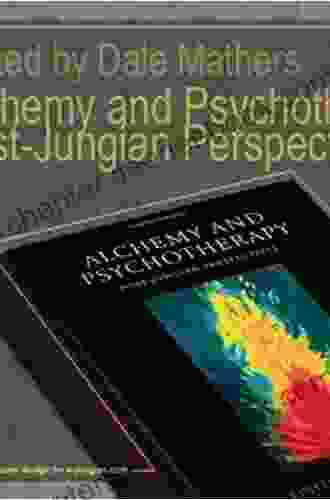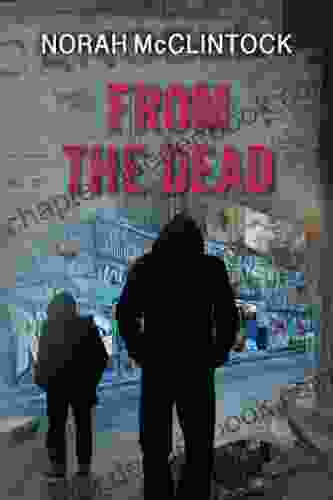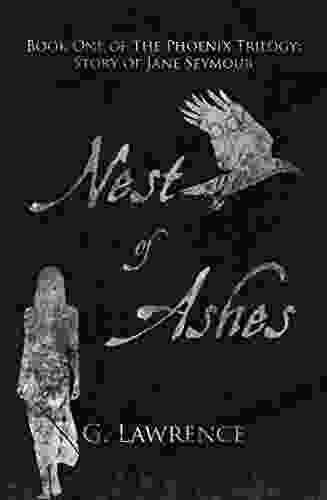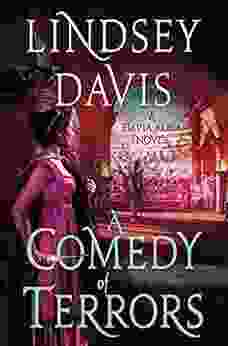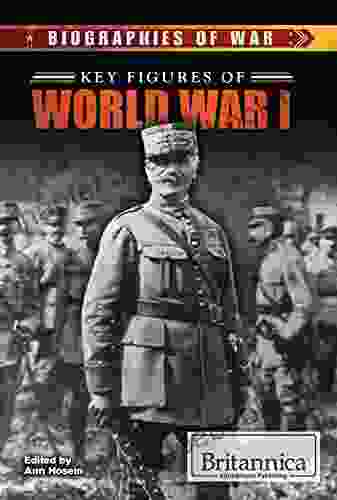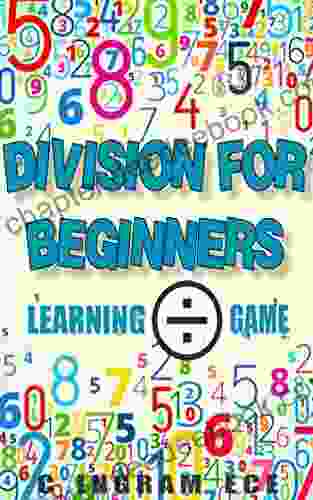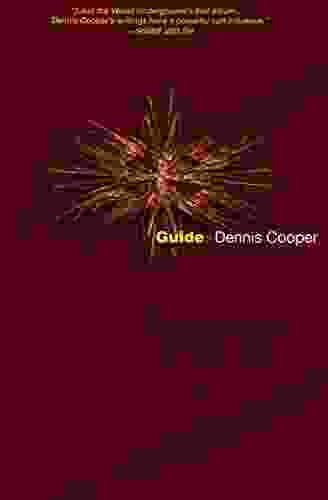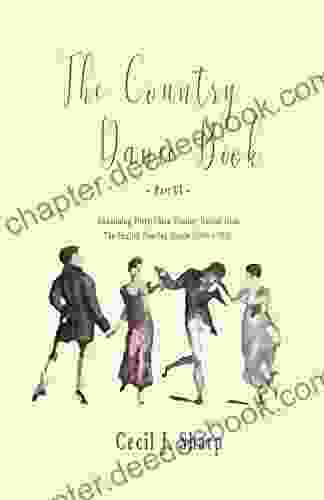The American Father Onscreen: A Post-Jungian Perspective

4.6 out of 5
| Language | : | English |
| File size | : | 3429 KB |
| Text-to-Speech | : | Enabled |
| Enhanced typesetting | : | Enabled |
| Word Wise | : | Enabled |
| Print length | : | 185 pages |
| Screen Reader | : | Supported |
The father figure has long been a central figure in American cinema, representing both the traditional values of patriarchy and the challenges to those values in a rapidly changing world. From the stern and authoritarian fathers of early Hollywood films to the more complex and nuanced fathers of contemporary cinema, the portrayal of fathers onscreen has evolved alongside our own understanding of masculinity and fatherhood.
In this article, we will explore the portrayal of fathers in American cinema from a post-Jungian perspective, examining how the archetype of the father has evolved over time and its implications for our understanding of masculinity and fatherhood. We will begin by discussing the traditional Jungian view of the father archetype, and then trace its evolution in American cinema from the early days of Hollywood to the present day.
The Traditional Jungian View of the Father Archetype
In Jungian psychology, the father archetype represents the principle of authority, order, and reason. He is the patriarch of the family, the protector and provider, and the embodiment of social norms and values. The father archetype is a powerful force in our lives, shaping our sense of self and our place in the world.
However, the father archetype is not always a positive force. He can also be repressive and authoritarian, stifling our creativity and individuality. In some cases, the father archetype can even be destructive, leading to violence and abuse.
The Evolution of the Father Archetype in American Cinema
The portrayal of fathers in American cinema has evolved significantly over time, reflecting the changing social and cultural values of American society. In the early days of Hollywood, fathers were typically portrayed as stern and authoritarian figures, representing the traditional patriarchal values of the time.
However, as the 20th century progressed, the portrayal of fathers in American cinema began to change. In the 1950s and 1960s, fathers were increasingly portrayed as more complex and nuanced characters, reflecting the changing social and cultural values of the time.
This trend continued in the 1970s and 1980s, as fathers were increasingly portrayed as fallible and vulnerable human beings. This reflected the growing awareness of the challenges faced by fathers in a rapidly changing world.
In recent years, the portrayal of fathers in American cinema has become even more diverse. Fathers are now portrayed as a wide range of characters, from the traditional patriarch to the stay-at-home dad. This reflects the growing diversity of family structures in American society.
The Implications of the Evolving Father Archetype
The evolution of the father archetype in American cinema has significant implications for our understanding of masculinity and fatherhood. The traditional patriarchal view of the father is no longer the only model of masculinity available to men. Instead, men can now choose from a wide range of fatherhood styles, depending on their own individual needs and circumstances.
This is a positive development, as it allows men to be more fully themselves and to express their masculinity in a way that is authentic to them. It also allows fathers to be more involved in the lives of their children, which can have a positive impact on the children's development.
The portrayal of fathers in American cinema has evolved significantly over time, reflecting the changing social and cultural values of American society. The traditional patriarchal view of the father is no longer the only model of masculinity available to men, and fathers are now portrayed as a wide range of characters, from the traditional patriarch to the stay-at-home dad. This is a positive development, as it allows men to be more fully themselves and to express their masculinity in a way that is authentic to them.
The evolving portrayal of fathers in American cinema also has implications for our understanding of fatherhood. Fatherhood is no longer seen as a static role, but rather as a dynamic and ever-changing experience. Fathers are now expected to be more involved in the lives of their children, and they are playing a more active role in shaping their children's development.
This is a positive trend, as it can help children to develop into healthy and well-rounded individuals. It is also a positive trend for fathers, as it allows them to be more involved in the lives of their children and to experience the joys and challenges of fatherhood.
4.6 out of 5
| Language | : | English |
| File size | : | 3429 KB |
| Text-to-Speech | : | Enabled |
| Enhanced typesetting | : | Enabled |
| Word Wise | : | Enabled |
| Print length | : | 185 pages |
| Screen Reader | : | Supported |
Do you want to contribute by writing guest posts on this blog?
Please contact us and send us a resume of previous articles that you have written.
 Book
Book Page
Page Genre
Genre Library
Library Paperback
Paperback Newspaper
Newspaper Paragraph
Paragraph Sentence
Sentence Shelf
Shelf Preface
Preface Synopsis
Synopsis Manuscript
Manuscript Codex
Codex Tome
Tome Bestseller
Bestseller Classics
Classics Library card
Library card Narrative
Narrative Biography
Biography Autobiography
Autobiography Reference
Reference Encyclopedia
Encyclopedia Dictionary
Dictionary Thesaurus
Thesaurus Narrator
Narrator Resolution
Resolution Librarian
Librarian Archives
Archives Periodicals
Periodicals Study
Study Research
Research Scholarly
Scholarly Academic
Academic Reading Room
Reading Room Rare Books
Rare Books Special Collections
Special Collections Literacy
Literacy Study Group
Study Group Awards
Awards Theory
Theory Sara Gran
Sara Gran Julie Krantz
Julie Krantz David Joyner
David Joyner Jeff C Marshall
Jeff C Marshall Dalivia Plaut
Dalivia Plaut Konden Smith Hansen
Konden Smith Hansen Jax Burrows
Jax Burrows John A Van De Walle
John A Van De Walle Jan Baynham
Jan Baynham Vladimir Shveda
Vladimir Shveda S L Viehl
S L Viehl Diane Eichenbaum
Diane Eichenbaum Charles K Hyde
Charles K Hyde Douglas Weiss
Douglas Weiss Ingrid Lee
Ingrid Lee Katherine Ayres
Katherine Ayres Roger Hickman
Roger Hickman Kian Guan Lim
Kian Guan Lim Rajdeep Dua
Rajdeep Dua White Dove Books
White Dove Books
Light bulbAdvertise smarter! Our strategic ad space ensures maximum exposure. Reserve your spot today!
 Zachary CoxFollow ·12.7k
Zachary CoxFollow ·12.7k Albert ReedFollow ·11.9k
Albert ReedFollow ·11.9k Corey HayesFollow ·2k
Corey HayesFollow ·2k Randy HayesFollow ·14.5k
Randy HayesFollow ·14.5k Noah BlairFollow ·9.1k
Noah BlairFollow ·9.1k Dean ButlerFollow ·5.3k
Dean ButlerFollow ·5.3k Hudson HayesFollow ·19.3k
Hudson HayesFollow ·19.3k Eugene ScottFollow ·5.2k
Eugene ScottFollow ·5.2k
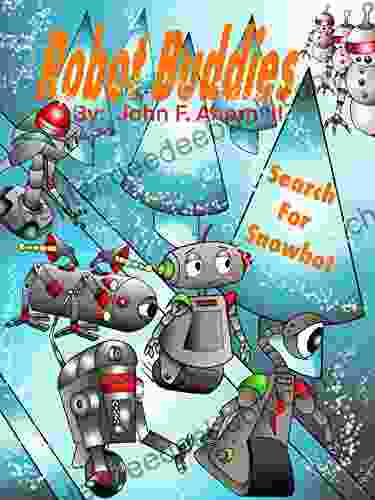
 F. Scott Fitzgerald
F. Scott FitzgeraldRobot Buddies: Search For Snowbot
In the realm of...

 Mario Vargas Llosa
Mario Vargas LlosaUnlocking Academic Success: A Comprehensive Guide to...
In the ever-challenging academic...

 Gabriel Blair
Gabriel BlairMake $000 Per Month Selling Your YouTube Freelancing...
Are you looking for a...
4.6 out of 5
| Language | : | English |
| File size | : | 3429 KB |
| Text-to-Speech | : | Enabled |
| Enhanced typesetting | : | Enabled |
| Word Wise | : | Enabled |
| Print length | : | 185 pages |
| Screen Reader | : | Supported |


